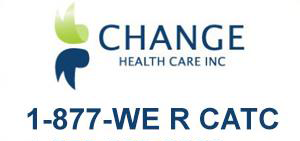-
 Q: Is the program a voluntary program?
Q: Is the program a voluntary program? -
A: Yes this is a voluntary program.
-
 Q: Do I need a referral to start the program?
Q: Do I need a referral to start the program? -
A: Although we do accept referrals, you do not need a referral to join our program.
-
 Q. How do I start the program?
Q. How do I start the program? -
A. Please contact the clinic most convenient to you to set up an intake appointment (all addresses and times are listed on the website). You can also drop in at a clinic and present your OHIP card and an initial appointment will be scheduled as soon as possible. After your initial intake you will be given an appointment with your physician.
-
 Q: What should I bring with me when I come to sign up for the program?
Q: What should I bring with me when I come to sign up for the program? -
A: You should bring with you a valid health card and photo ID.
-
 Q: What is the sign-up process like?
Q: What is the sign-up process like? -
A: Set aside about 45 minutes to an hour on your first day to complete the paperwork and a quick intake assessment with one of our staff. You will also be required to leave a urine sample, have some blood work drawn and an ECG.
-
 Q: How soon will I be able to get treatment?
Q: How soon will I be able to get treatment? -
A: We try to have every new patient see a doctor within 24 hours of when the patient first comes to the clinic. Please note that some things may affect this, such as weekends or holidays.
-
 Q: How do I get my first dose?
Q: How do I get my first dose? -
A: We will start you as soon as it can be done safely. Often this is on the same day you see your doctor or within a few days.
-
 Q: How is the program paid for?
Q: How is the program paid for? -
A: Clinic visits are fully paid for if you have a valid OHIP card. From time to time there may be needs outside of this, i.e. special forms or letters that are not covered under the Schedule of Benefits and Fees that you may be responsible to pay directly.
-
 Q: Is my medication costs covered?
Q: Is my medication costs covered? -
A: The costs of medications may be covered under government plans such as Ontario Drug Benefits (ODB) or Non-Insured Health Benefits (NHIB), a private medical plan, or Trillium Drug Plan (TDP).
-
 Q: Is my personal information confidential? Will my family, employer, outside agencies be made aware that I am on medication assisted therapy?
Q: Is my personal information confidential? Will my family, employer, outside agencies be made aware that I am on medication assisted therapy? -
A: All client information is confidential. CHANGE will not release a client’s personal information without a signed consent from the client, unless there is sufficient enough evidence to prove that another individual and/or child is at risk of harm, the client is at risk of self-harm, or the clients information is court ordered. Exceptional circumstances where we may be obliged to report something you tell us to the appropriate authority will be reviewed when you sign the contract at your initial intake appointment.
-
 Q: Will you call CAS when I sign up on the program?
Q: Will you call CAS when I sign up on the program? -
A: We do not automatically call CAS when you sign up on the program, if there is proof and thought of a child under the age of 16 being in harm we have a duty to report just as other agencies, centres, and programs.
-
 Q: How long will I be on the program?
Q: How long will I be on the program? -
A: The answer to this is as unique as each patient and as such, there is no “right” answer. Each person’s recovery journey is as individualized as they are themselves. For some individuals it can take years, or they may remain on the program indefinitely. Methadone and buprenorphine/naloxone, when taken as prescribed, are safe and effective medications. The Opioid Agonist program is a voluntary program and a patient can choose to stop the program at any time. This decision should be discussed with the physician so a process can be put in place to determine a safe rate that the patient should “taper” from the program to avoid the effects of unnecessary withdrawal.
It should be pointed out that most people who are most successful at coming off treatment with long term abstinence from drug use show three important characteristics:
• Stabilization: abstinence from drug use for more than 1 year.
• Signs of functional stability: steady employment, less legal or financial difficulties, repaired relationships.
• Consultation with physician to “taper” doses. -
 Q: Do I have to come to the clinic daily?
Q: Do I have to come to the clinic daily? -
A: Yes, in the beginning of the program you will be coming to the clinic or on site pharmacy daily for your medication. As Professionals in administering both MMT and BUP our staff know how the medications work and can assist you in navigating the program and address any questions or concerns that you may have.
-
 Q: How do I gain carries/ take home doses?
Q: How do I gain carries/ take home doses? -
A: Once you have been on the program for 2 months and are able to handle carries safely, your physician will prescribe take-home doses at a rate of one dose per week every four weeks, to a maximum of six take-home doses per week. Each additional take-home dose will only be prescribed after you have had at least four weeks without problematic substance abuse.
-
 Q: How often do I have to leave a urine drug screen (UDS)?
Q: How often do I have to leave a urine drug screen (UDS)? -
A: In most cases you leave samples twice a week until you are at level 6 on the program and then you will leave a UDS once a week. There is also random testing and you could be called and then you would have 24 hours to come to the clinic to leave a UDS.
-
 Q: If I am still using opiates after starting the program, will I be asked to leave?
Q: If I am still using opiates after starting the program, will I be asked to leave? -
A: No. You will not be asked to leave the program as we believe in the Harm Reduction approach to therapy.
-
 Q: What happens if I am on the program and I am going out of town for a few days?
Q: What happens if I am on the program and I am going out of town for a few days? -
A: With over 70 clinics throughout Ontario, amongst all of our affiliates, chances are there will be a CHANGE or affiliate clinic wherever you are travelling. Please let staff know of your plans 48 hours in advance to give them enough time to make arrangements for you.
-
 Q: Will it rot my teeth?
Q: Will it rot my teeth? -
A: Methadone & buprenorphine/naloxone will not rot your teeth. However, one of the side effects of these medications is dry mouth. Having a dry mouth can increase the amount of bacteria in your mouth and if you have any pre-existing cavities, cracks or chips in your teeth it will cause the situation to become worse. We encourage all patients to see a dentist, practice good oral hygiene and to keep their mouth moist.
-
 Q: What is better: methadone or suboxone?
Q: What is better: methadone or suboxone? -
A: The best medication is based on many factors. One medication may be more appropriate than the other for a particular patient based on the individual’s medical history or social factors. Personal preference may also be considered in the decision. Consultation between the physician and patient will determine the appropriate treatment.
-
 Q: Can I switch between medications (suboxone /methadone)?
Q: Can I switch between medications (suboxone /methadone)? -
A: You will discuss your options at your initial physician appointment. If you are not happy with your decision you can switch between methadone and suboxone. In order to start suboxone you will still need to be in withdrawal from methadone.
-
 Q: Isn’t this just switching one drug for another?
Q: Isn’t this just switching one drug for another? -
A: Substance misuse or addiction is a disease that can require medication intervention as well as life style modification. The medication stabilizes the condition which allows the individual to change their life style in order to put the disease into remission.
-
 Q: Are there any negative drug interactions?
Q: Are there any negative drug interactions? -
A: Taking mood altering substances while on methadone or suboxone can be potentially dangerous. There have been reported deaths, by the combination of methadone with alcohol, opioids, cocaine, barbiturates, benzodiazepines and/or tranquilizers.
-
 Q: What will happen if I stop taking my medication?
Q: What will happen if I stop taking my medication? -
A: In the early stages of your methadone treatment it is highly recommended that no doses are missed. Later in treatment, if you miss 3 consecutive days of methadone you will need to be reassessed by a Physician to begin the program again.
-
 Q: Can methadone be used during pregnancy?
Q: Can methadone be used during pregnancy? -
A: Yes, if you are pregnant and still using opiates you should begin methadone maintenance as soon as possible. Methadone prevents opioid withdraw, which can be dangerous for your baby. Methadone is a safe and effective way to manage opiate dependency during pregnancy. Please refer to Pregnancy Related Issues in the Management of Addiction site: www.addictionpregnancy.ca/breastfeeding.html
-
 Q: Does CHANGE treat a Crack/Cocaine addiction ?
Q: Does CHANGE treat a Crack/Cocaine addiction ? -
A: Our program is methadone/suboxone based which is used for opiate dependence, those medications do not treat cocaine addiction. However, we can refer you to the appropriate treatment services for cocaine dependence if you contact one of our clinics.
Frequently Asked Questions


.png)

